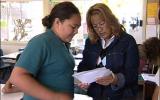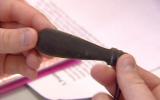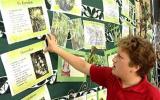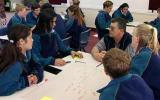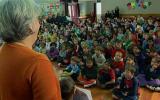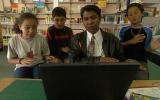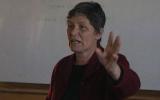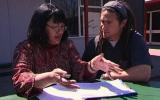Section navigation
Filter by result
Sections
- Effective leaders(12)
- Effective teachers(23)
Key collections
- Te Mana Kōrero(36)
Principles
- Productive partnerships(18)
- Identity, language and culture(10)
- Ako(15)
Te Mana Kōrero
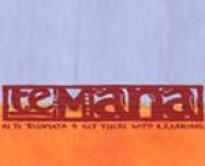
Thank you for visiting. This site will close in July 2025.
Please visit Tāhūrangi - the new online curriculum hub from the Ministry of Education.
Te Mana Kōrero is a series of three professional development packages and facilitated workshops.
These professional development packages draw on the evidence that show what is working for Māori students, from programmes such as Te Kotahitanga and Te Kauhua.
Each of these successful professional development programmes is based on important Māori concepts or principles:
- ako – effective and reciprocal teaching and learning relationships where everyone is a learner and a teacher
- manaakitanga – the care for students as culturally located people above all else
- mana motuhake – the care by teachers for the academic success and performance of their students
- whakawhanaungatanga – the nurturing of mutually respectful and collaborative relationships between all parties around student learning.
The content and video resources you will find on these pages are taken from Te Mana Kōrero Online, developed to help school leaders and teachers address and meet the goals of Ka Hikitia: Managing for Success: The Māori Education Strategy 2008–2012 (Ministry of Education, 2008-2009).
-
Whānau involvement
 28/06/2011
28/06/2011
Filed under: Productive partnerships | Effective leaders
The need for whānau involvement does not diminish as students advance through schooling, and schools need to ensure their relationships with whānau extend beyond the immediate family. Regular communication is key. (Extract from ‘Te Mana Kōrero: Relationships for Learning’, 2007).
-
Whānau involvement at Hiruharama School
 28/06/2011
28/06/2011
Filed under: Productive partnerships | Effective leaders
Whānau and community involvement in school life can and should extend beyond supporting the school at cultural and sporting activities, and lead to engagement which directly supports students’ learning. At Hiruharama School, whānau are engaged at every level including strategic planning. (Extract from ‘Te Mana Kōrero: Relationships for Learning’, 2007).
-
Te Mana Kōrero: Culture counts 2
 28/06/2011
28/06/2011
Filed under: Productive partnerships | Identity Language and Culture | Ako | Effective teachers
Culturally responsive learning contexts are those where the learner can bring their own experiences into the classroom context. (Extract from ‘Te ManaKōrero: Relationships for Learning’, 2007).
-
Te Mana Kōrero: Culture counts 1
 28/06/2011
28/06/2011
Filed under: Identity Language and Culture | Ako | Effective teachers
Research shows that bringing cultural context into the curriculum affirms the students identity, and validates their cultural knowledge and knowledge of their whānau. (Extract from ‘Te ManaKōrero: Relationships for Learning’, 2007).
-
Relationships for learning - Te Mana Kōrero
 28/06/2011
28/06/2011
Filed under: Productive partnerships
The importance of building effective relationships between schools and whānau. (Extract from ‘Te ManaKōrero: Relationships for Learning’, 2007).
-
Impacting Māori student achievement outcomes
 28/06/2011
28/06/2011
Filed under: Ako | Effective teachers
Practitioners reflect on the impact of professional development that is focused on improving Māori learning outcomes. (Extract from ‘Te Mana Kōrero : Strengthening Professional Practice’, 2005).
-
Whānau and communities
 28/06/2011
28/06/2011
Filed under: Productive partnerships | Effective leaders
Relationships with whānau and communities. Research evidence shows that when schools develop relationships with whānau and communities around child learning, then the learning outcomes improve for all their students. (Extract from ‘Te Mana Kōrero : Strengthening Professional Practice’, 2005).
-
Innovating with ICT
 28/06/2011
28/06/2011
Filed under: Identity Language and Culture | Effective teachers
The innovative use of ICT can be used to enhance professional development. Pakaraka School has created an environment where everyone is a learner. It uses ICT to capture the weekly lesson of a visiting teacher of Te Reo Māori. (Extract from ‘Te ManaKōrero: Strengthening Professional Practice’, 2005).
-
Validating cultural knowledge
 28/06/2011
28/06/2011
Filed under: Productive partnerships | Identity Language and Culture | Effective leaders
Developing an inclusive curriculum. At Rotorua Lakes and Greymouth High Schools, student and whānau knowledge is validated through its introduction into the context for learning. (Extract from ‘Te Mana Kōrero: Strengthening Professional Practice’, 2005).
-
Critical reflection - Te Mana Kōrero
 28/06/2011
28/06/2011
Filed under: Effective leaders | Effective teachers
A feature of effective professional learning is critical reflection on practice. At Greymouth High School and Waitara Primary School, teachers are opening up their classrooms to others for peer observation and feedback. (Extract from ‘Te ManaKōrero: Strengthening Professional Practice’, 2005).
« Previous Next » 1 2 3 4








